I have a Client Details screen with many UITextField. I need to limit the postcodeField to a maximum of 7 characters and convert to uppercase automatically. I already have code to convert the text to uppercase, but it seems I cannot do anything else with that particular UITextField in its Delegatemethod
- (BOOL)textField:(UITextField *)textField shouldChangeCharactersInRange:(NSRange)range replacementString:(NSString *)string {
Here is what I have tried:
#define MAXLENGTH 7
- (BOOL)textField:(UITextField *)textField shouldChangeCharactersInRange:(NSRange)range replacementString:(NSString *)string {
if (textField == self.postcodeField) {
self.postcodeField.text = [textField.text stringByReplacingCharactersInRange:range withString:[string uppercaseString]];
return NO;
}
if (self.postcodeField.text.length >= MAXLENGTH && range.length == 0)
{
return NO;
}
return YES;
}
And:
- (BOOL)textField:(UITextField *)textField shouldChangeCharactersInRange:(NSRange)range replacementString:(NSString *)string {
if (textField == self.postcodeField) {
self.postcodeField.text = [textField.text stringByReplacingCharactersInRange:range withString:[string uppercaseString]];
return NO;
}
NSUInteger newLength = [textField.text length] + [string length] - range.length;
return (newLength > 7) ? NO : YES;
}
This code does not work. I know there are many threads with various solutions to setting a maximum length, but I can't find a solution that caters for uppercase conversion too. I am quite new to iOS so I apologise if this is seen as a duplicate post. Any help is much appreciated!
